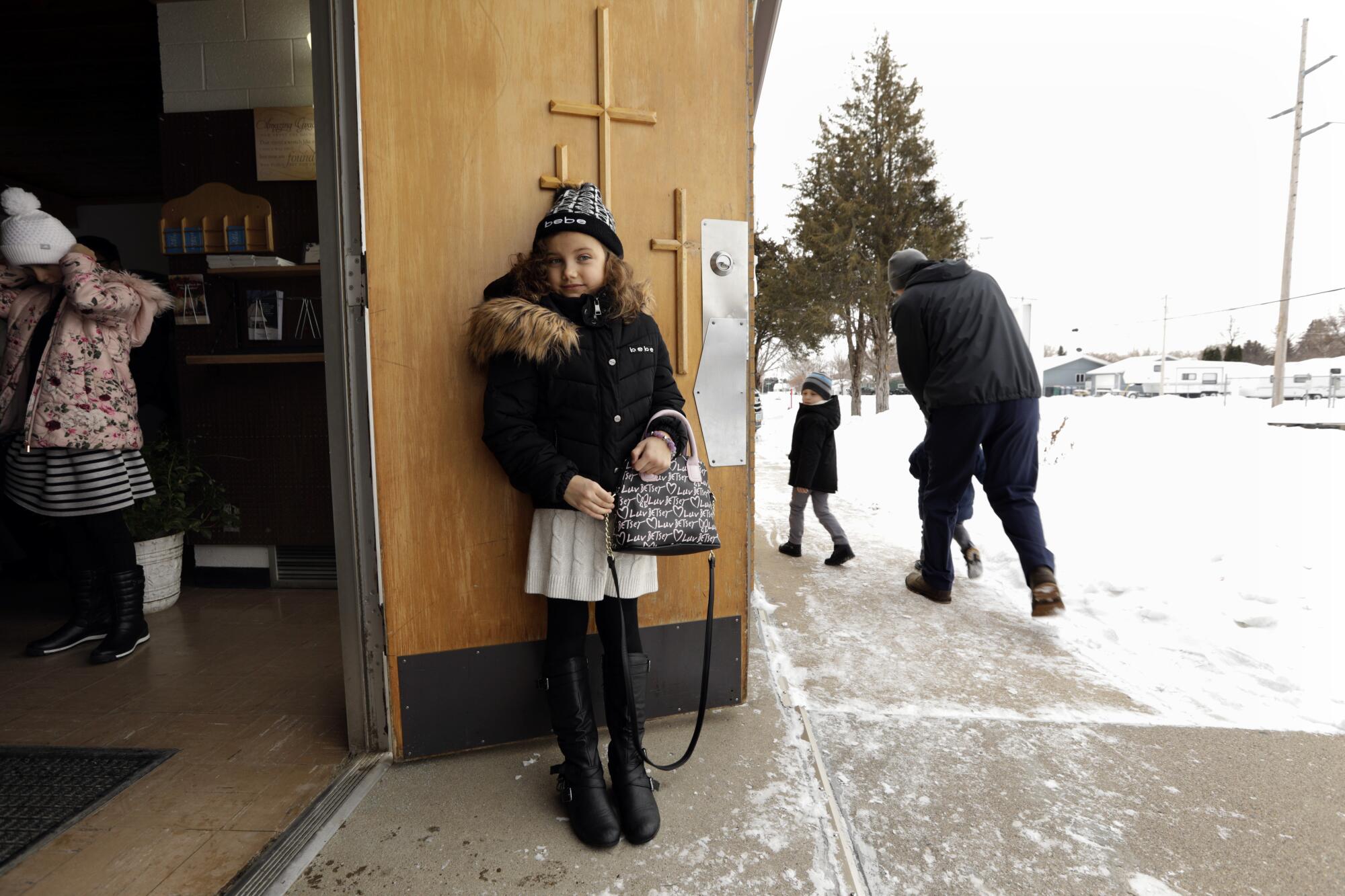
- Share via
BISMARCK, N.D. — For decades, this conservative, predominantly white capital city has played host to refugees from around the world.
Immigrants greet shoppers at Walmart, process beef at the Cloverdale Foods plant, run the register at Arby’s, clean the Holiday Inn and drive for Uber.
Nobody used to pay them much mind.
“Life was getting better,” said 20-year-old Tresor Mugwaneza, who settled here four years ago after fleeing war in the Democratic Republic of Congo and eventually enrolled at the University of Mary.
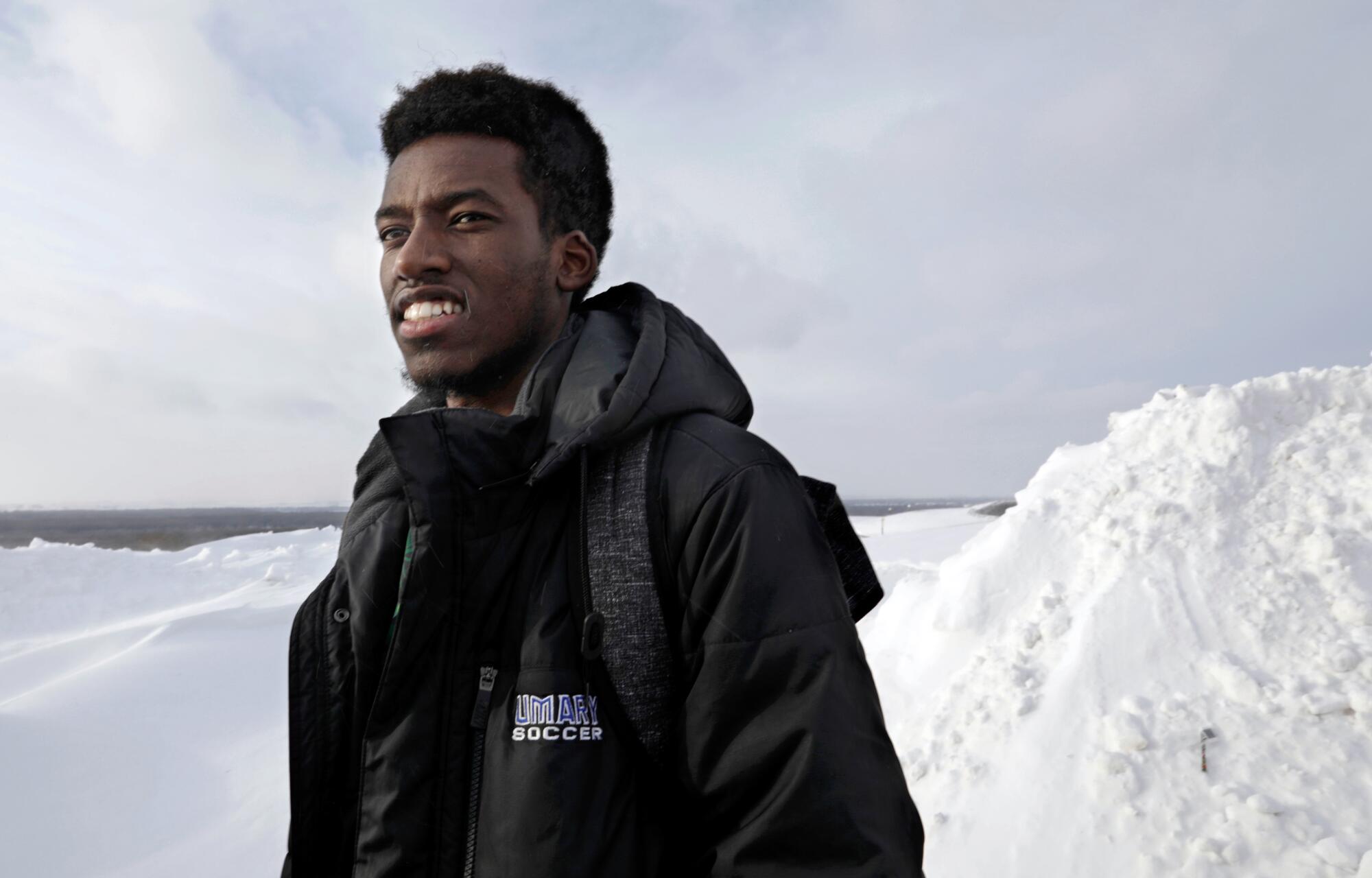
Things started to change with the 2016 election of President Trump, who has suggested that many refugees are criminals and has extolled his belief in putting “America first” by drastically reducing the number allowed to enter the United States.
The rhetoric has trickled down from Washington into smaller, quieter parts of the nation, as citizens and local politicians embrace it and places such as Bismarck start to reassess their relationship with the newcomers.
Now, because of a federal policy announced in September, the 49 states and 600 counties that have welcomed refugees — only Wyoming has never taken part in federal resettlement efforts — each have the power to decide whether to continue doing so.
Just a year ago, the biggest controversy in Bismarck — home to most of the 95,000 people in Burleigh County — was whether to allow the construction of a wind farm. That was nothing compared with the debate that has erupted over immigrants.
Suddenly, on the cusp of winter, when life quiets down and temperatures may stay below zero for days at a time, it seemed refugees were all that residents could talk about.
“These people come and destroy everything they touch,” said a post on a local Facebook group, Bismarck’s People Reporting News, which gained thousands of members and became an outlet for concern as well as fear and misinformation.
The mayor, Steve Bakken, became a leading proponent of closing the door on more refugees, arguing that homeless veterans need help more than those fleeing war on another continent.
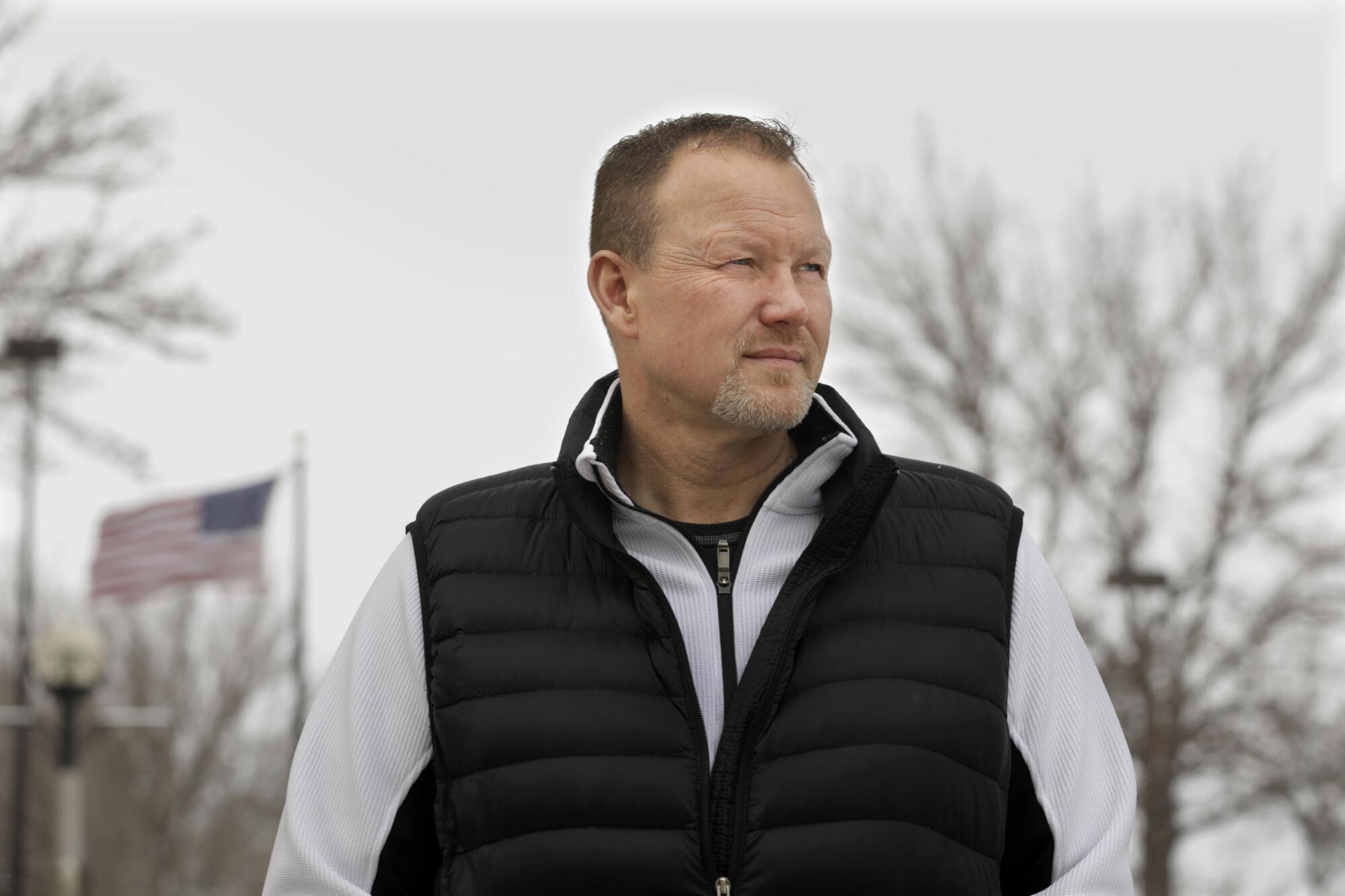
“If we can’t meet the needs of people here, why bring new ones in?” he asked in an interview.
In early December, when the Burleigh County Commission gathered to vote on whether it would continue to take in refugees, so many people showed up that the vote had to be rescheduled for a week later in a larger venue.
People such as Mugwaneza were accused of being freeloaders or “illegals.”
“Why do people say terrible things?” he said. “They don’t even know us.”
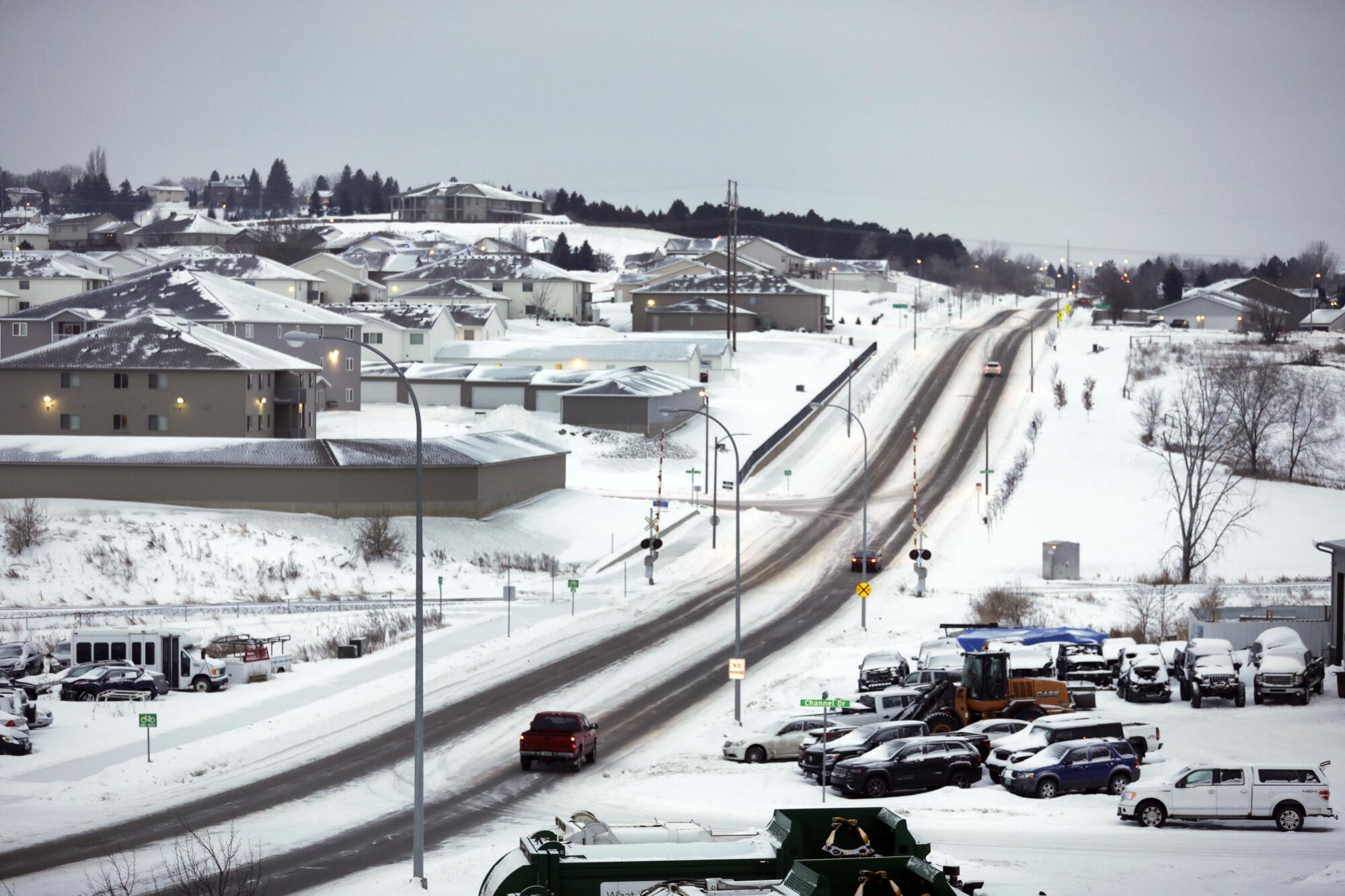
A long history of helping immigrants
The national debate over immigration and refugees has centered on the tens of thousands of Central Americans who have arrived on the southern U.S. border claiming asylum.
North Dakota sits roughly 1,300 miles north of the Rio Grande. Here, most of the refugees are from Bhutan, Iraq, Somalia or the Democratic Republic of Congo.
They arrived over the years with the assistance of Lutheran Social Services, which partners with one of just nine nonprofit organizations across the country that are federally authorized to resettle people who receive visas as refugees.
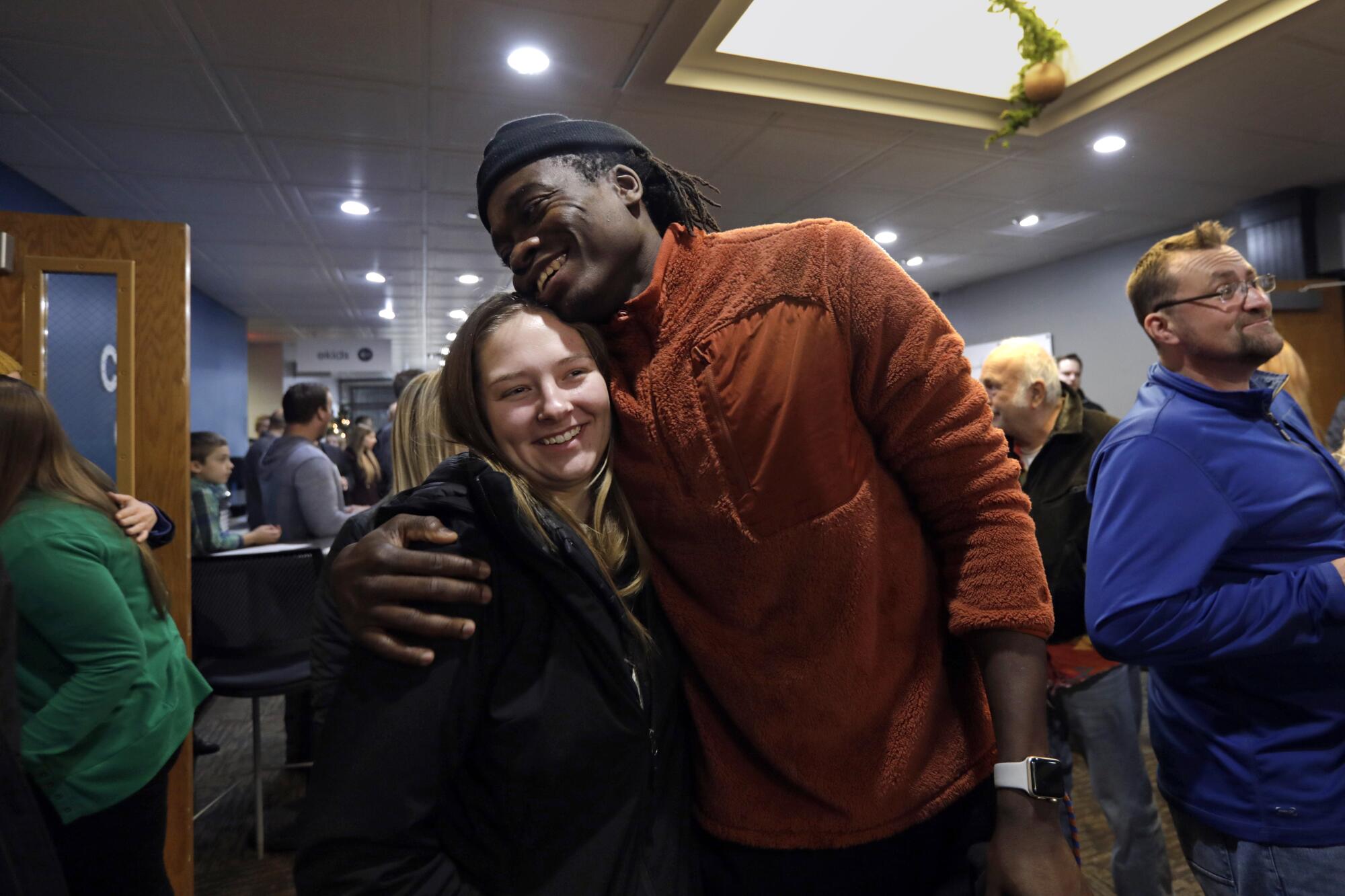
The federal government decides how many to admit each year. The nonprofits help figure out where they go.
California, New York and other large, diverse states take in the most. But a disproportionately large share wind up in many smaller, redder regions, including North Dakota, which over the last decade has resettled 4,050 refugees. In several years, its total per capita was the highest in the nation.
The newcomers were easily absorbed in a state with cheap rents, an oil boom, low unemployment and a tradition of helping the dispossessed that goes back to World War II, when thousands of Europeans fled to the Midwest.
In his last year in office, President Obama agreed to allow in 110,000 refugees, the most since Congress launched the current refugee resettlement program in 1980. President Trump has lowered that number each year — down to 18,000 for the fiscal year that will end in September.
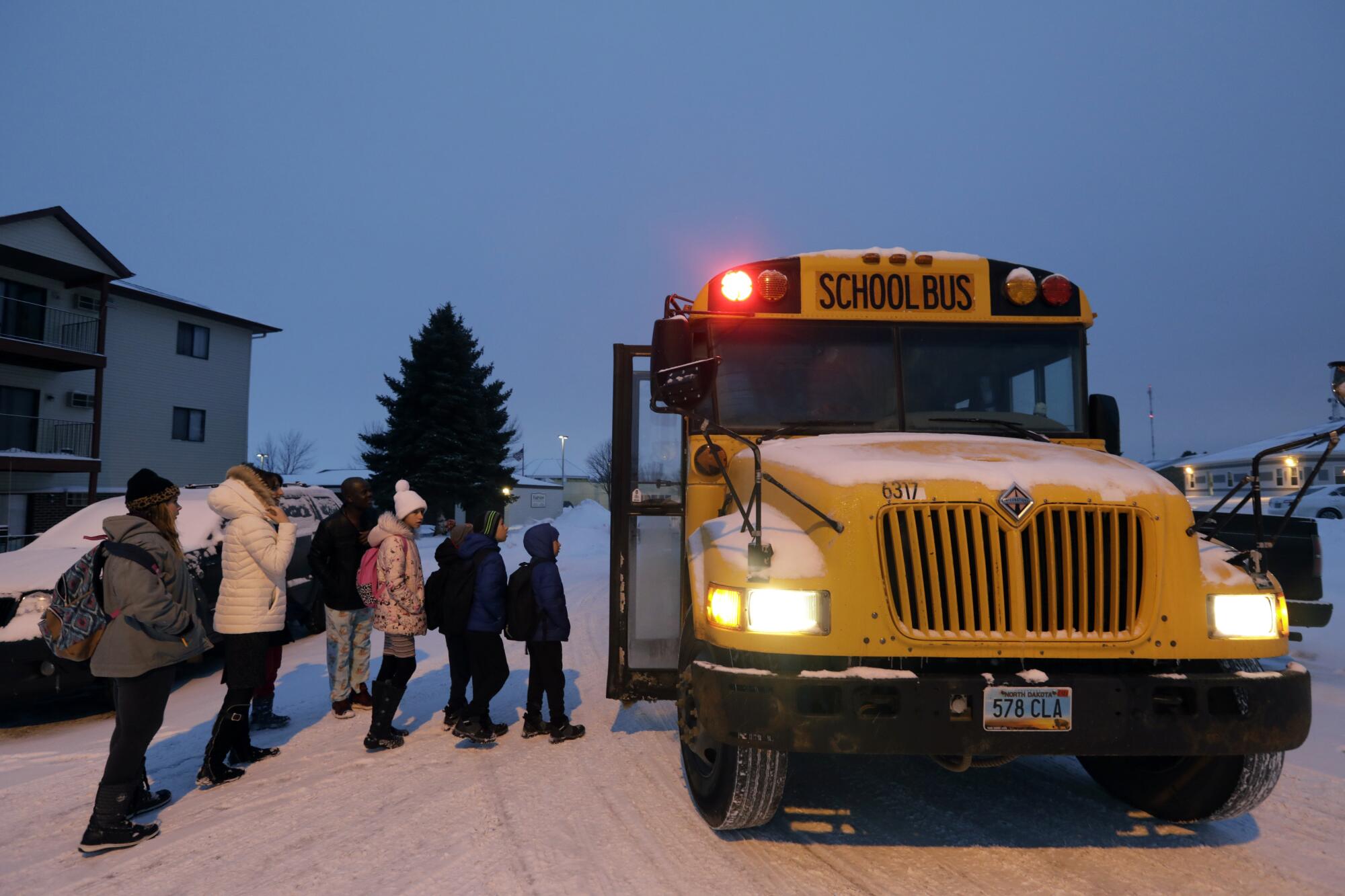
The numbers arriving in North Dakota have fallen dramatically. In 2019, it took in 126, including 25 — all Congolese or Ukrainian — who landed in Bismarck.
As for which places around the country will continue to accept refugees, states and counties have until the end of this month to let the federal government know where they stand. Some 40 states and dozens of counties have consented with little debate or protest.
In North Dakota, where Trump won 63% of the vote, the Republican governor, Doug Burgum, signaled his support for business as usual. “North Dakota has had success at integrating refugees,” he wrote in a letter to U.S. Secretary of State Michael R. Pompeo.
But the new federal policy gives local communities the right to go against their state’s wishes. Burleigh County began to seriously consider doing just that.
The reaction surprised Turdukan Tostokova, a resettlement coordinator at Lutheran Social Services who immigrated here from Kyrgyzstan 20 years ago after marrying a local elementary schoolteacher and eventually became a U.S. citizen.
“We’re a conservative, homogeneous community,” she said. “But I’ve done this job for eight years and rarely ever heard people speak badly about refugees.”
Tostokova is the first person refugees meet when they arrive in Bismarck.
She waits outside airport security and drives them to apartments set up with donated furniture. She gives them winter coats and teaches them how to turn on the heat.
She tells them they are required to reimburse the government for their airline tickets and pushes them to find jobs because monthly payments from the federal government — $335 for a family of two — only last eight months.
Now, with the county commissioners about to vote on the issue, Tostokova also had to explain to the newcomers that they might not be wanted.
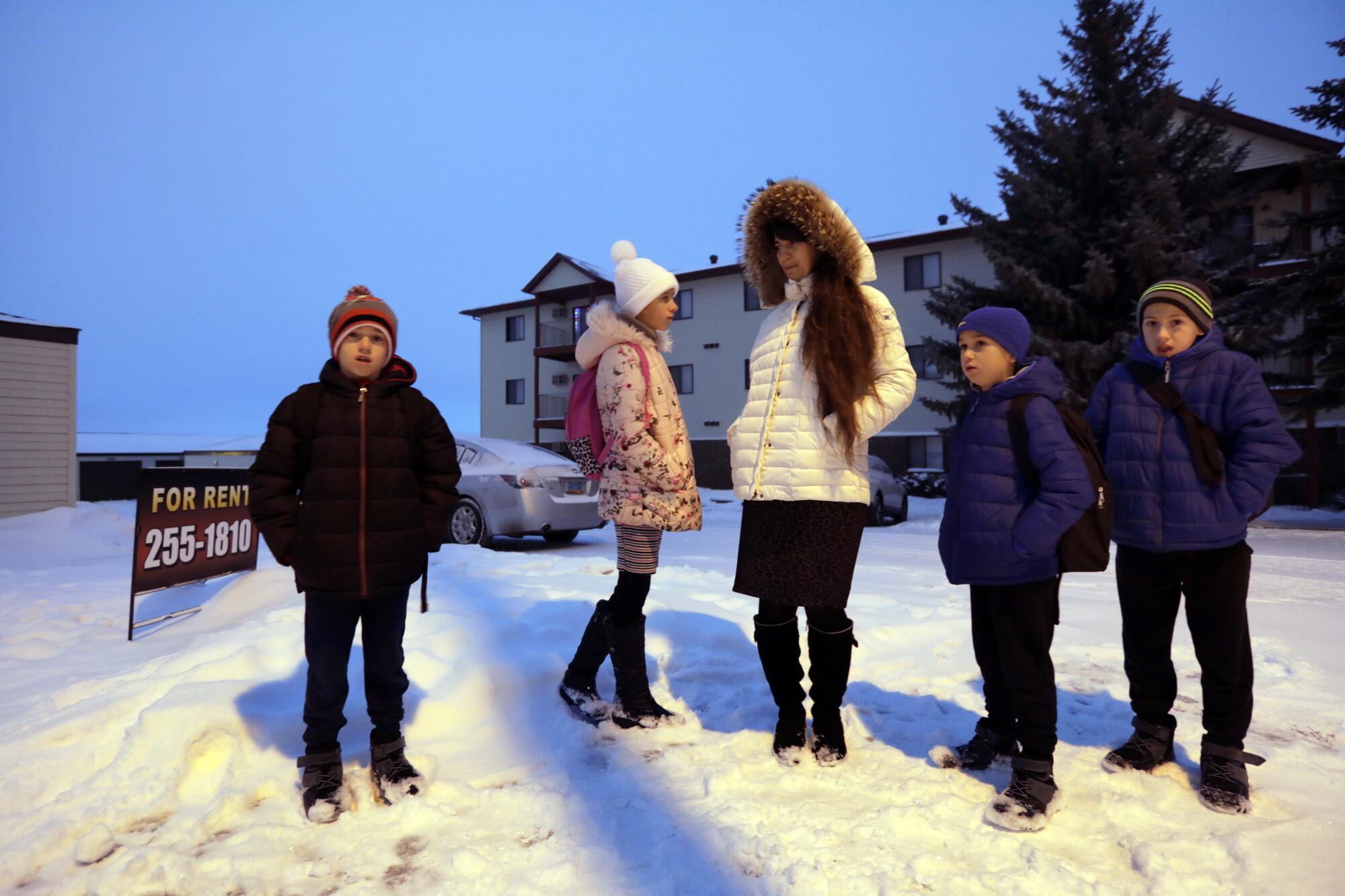
“They could decide to no longer have refugees,” Tostokova told 33-year-old Yuliia Kulybchuk in Russian.
Kulybchuk, her husband and their five children had arrived in the city a month earlier from western Ukraine, through a refugee program for religious minorities in former Soviet countries. As Pentecostal Christians, they were part of a community that the Orthodox majority historically blocked from jobs and schooling. In more turbulent eastern Ukraine, pro-Russian separatists murdered Pentecostals in recent years.
“We came here for our kids,” Kulybchuk said. “We want them to be free and have a good education.”
Back home, she studied to be a teacher but couldn’t find work. Her husband hoped to find jobs laying tile. It’s what his brothers, also refugees, did after arriving in town two years ago.
Floating against the dining room wall of the family’s sparsely furnished three-bedroom apartment was a gift from the brothers: a silver balloon featuring an American flag.
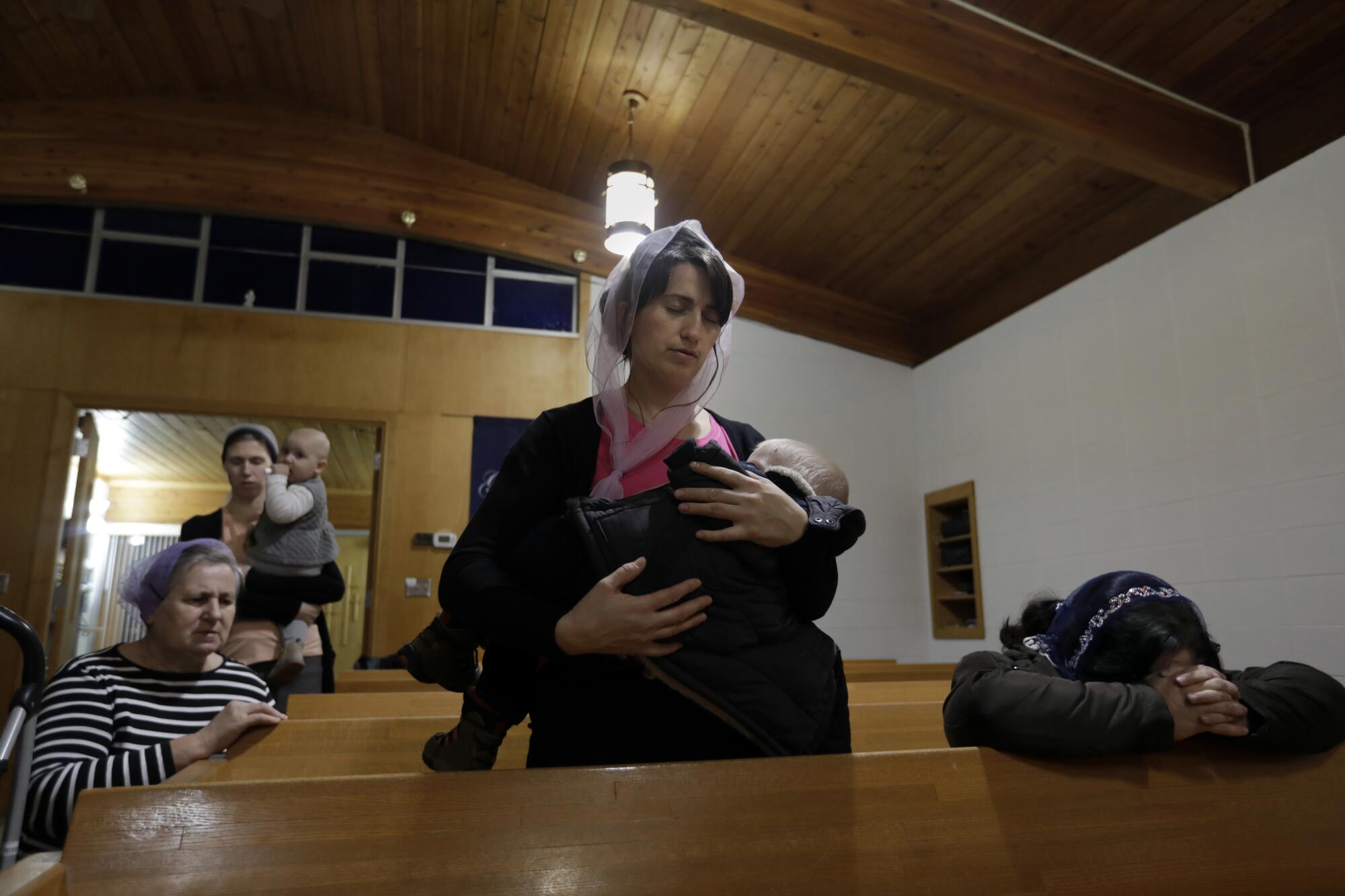
Resentment surfaces, as well as support
Mugwaneza and his two brothers fled the Democratic Republic of Congo after their father was killed and they ended up in an orphanage in neighboring Burundi.
A priest helped his mother escape enslavement and travel to India, where she applied to live in the United States. She arrived in Bismarck in January 2015.
Mugwaneza and his brothers landed at Bismarck Municipal Airport two months later.
He traded Swahili for English, led the high school soccer team to a state championship and became a mentor to Congolese boys who arrived after him.
His older brother enrolled in college in Fargo, while his younger one got a job delivering food.
On a Tuesday night last month, Mugwaneza put on a white hoodie and drove with his old soccer teammates from high school to Horizon Middle School, where the County Commission was holding its rescheduled vote.
Hundreds of Bismarck residents were packed into the auditorium.
Some wore red shirts and “Make America Great Again” hats, while others came with homemade red, white and blue signs that said, “I vote welcome.”
They lined up to address the five commissioners. Mugwaneza went to the back to wait his turn and listen.
Several speakers didn’t realize that refugees were legally allowed in the country and that they typically waited for years to get in.
“If these people want to come to our country,” Barb Knutson, 71, testified, “wait their way through the legal way of getting here, get a job, make a life for themselves, become citizens, adopt to our country’s way of doing things. ... More power to them.”
Marty Beard, a 51-year-old mountain-lion hunter from the outskirts of the city, blasted the Obama administration for allowing “refugees and immigrants into this country un-vetted.”
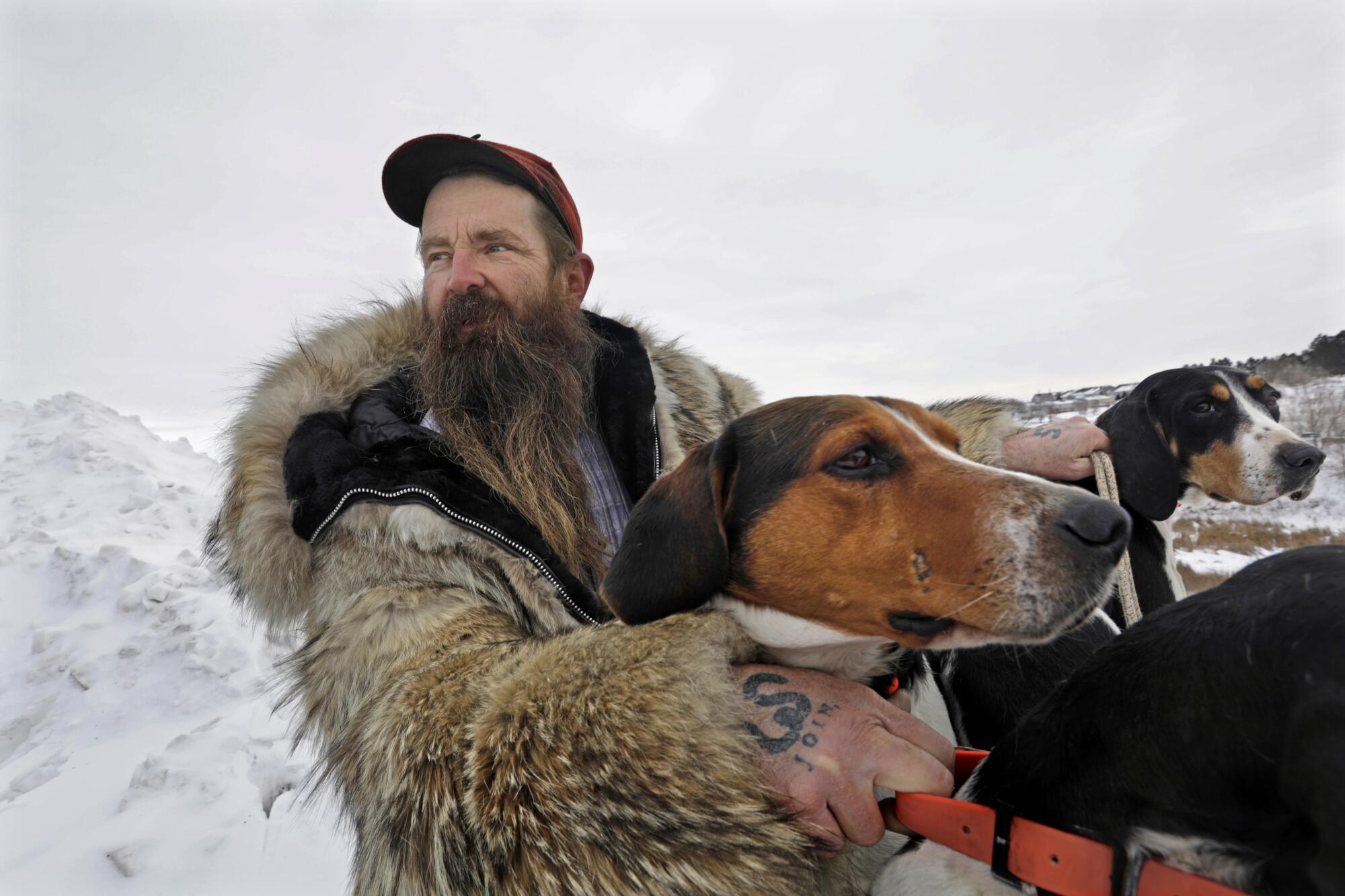
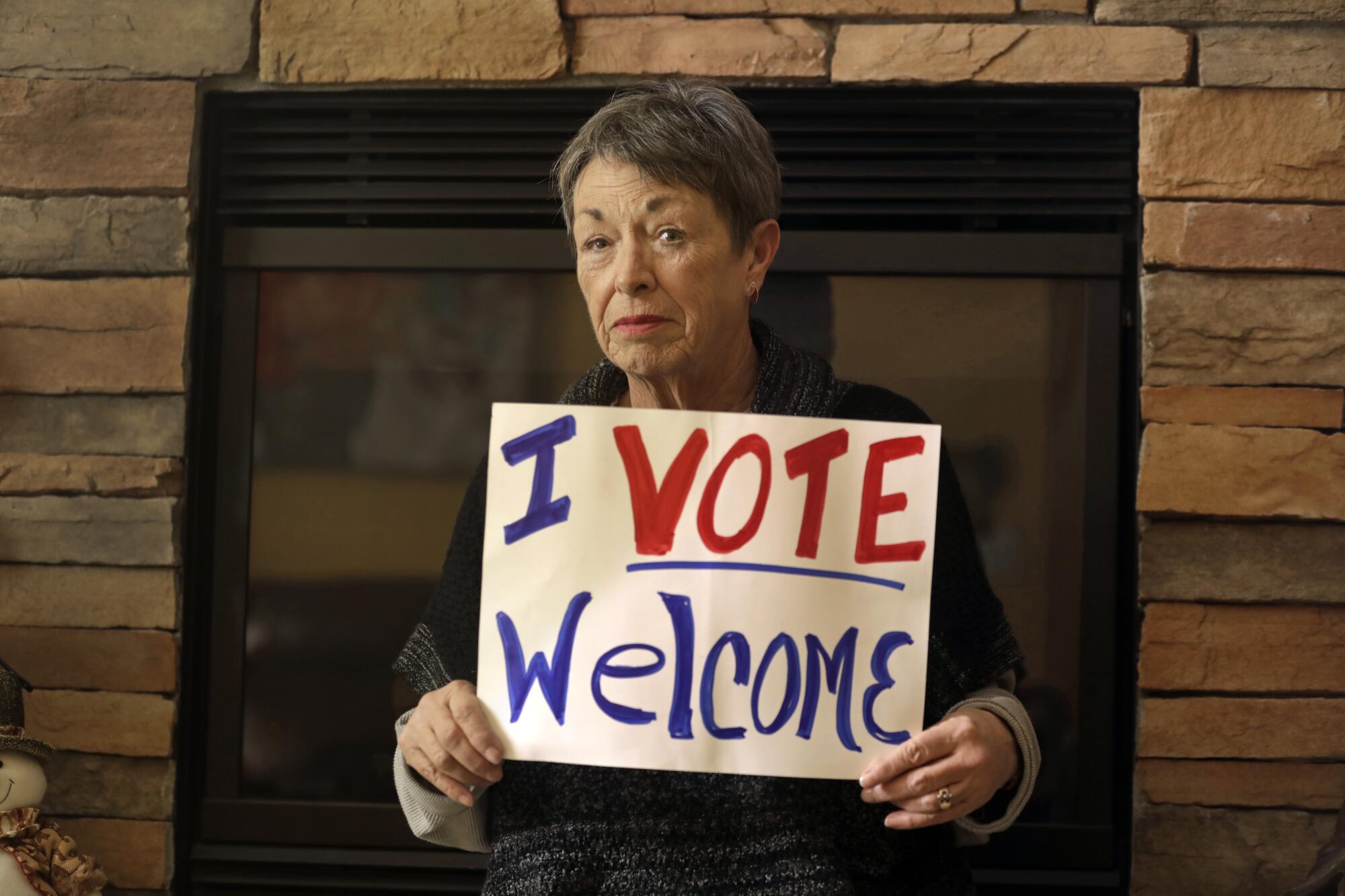
“I’m against Islam that comes up again and again,” he added, saying he feared the “ideology” of Muslim refugees.
Defenders of the refugees pointed out that the U.S. government heavily vetted the newcomers and that most of those in Bismarck were Christians and attended local evangelical churches.
One resident, Clara Butland, noted that few people were bothered when outsiders flooded into North Dakota for oil jobs.
“The strain that has posed on our resources … I haven’t heard the same level of complaints from people of this state,” she said.
Another resident, Eric Thompson, put it more bluntly.
“Prejudice is an ugly term that speaks volumes about the person it describes,” he said. “I will not be a party to anything that makes me look that bad.”
Two hours in, Mugwaneza reached the front of the line and walked up to the microphone.
“People think we are lazy and just sit at home and get the government money, but that is all wrong,” he said before informing the commissioners that his mother worked two jobs to pay the bills.
“Who are you to judge such a hardworking person?” he said. “How do you think she is going to feel when she’s being judged and called lazy?”
A commissioner motioned to him to wrap it up.
“We are not in this country just to take your government money,” Mugwaneza said.
Several times that night, he had to remind himself that he had been through much worse. But he was heartened that more people were defending refugees than condemning them.
And after four hours of testimony, the commission finally voted: 3 to 2 in favor of refugees.
There were caveats. The commissioners decided to cap the number of newcomers allowed each year at 25. And they ordered the Lutheran refugee agency to submit a report each year on where refugees came from and how much money was spent on them.
Mugwaneza was relieved.
Counties must renew their consent each year, and opponents in Bismarck are keeping tensions high by starting to campaign for the next vote. But for all the vitriol, the city was not ready to turn its back on refugees this time.
The outcome was the same in nearly every other county — even those that voted for Trump — that has taken up the issue.
Only two counties have said no. But since neither Appomattox County in Virginia, population 15,000, nor Beltrami County in Minnesota, population 45,000, has settled refugees in recent years, their decisions have been largely symbolic.
Mugwaneza saw another lesson in the bitter public debate the night of the vote. He had studied the 1st Amendment in school and believed he had just witnessed an example of it.
“It was terrible to hear people say what they were saying,” he said. “At the same time, everyone has a right.”
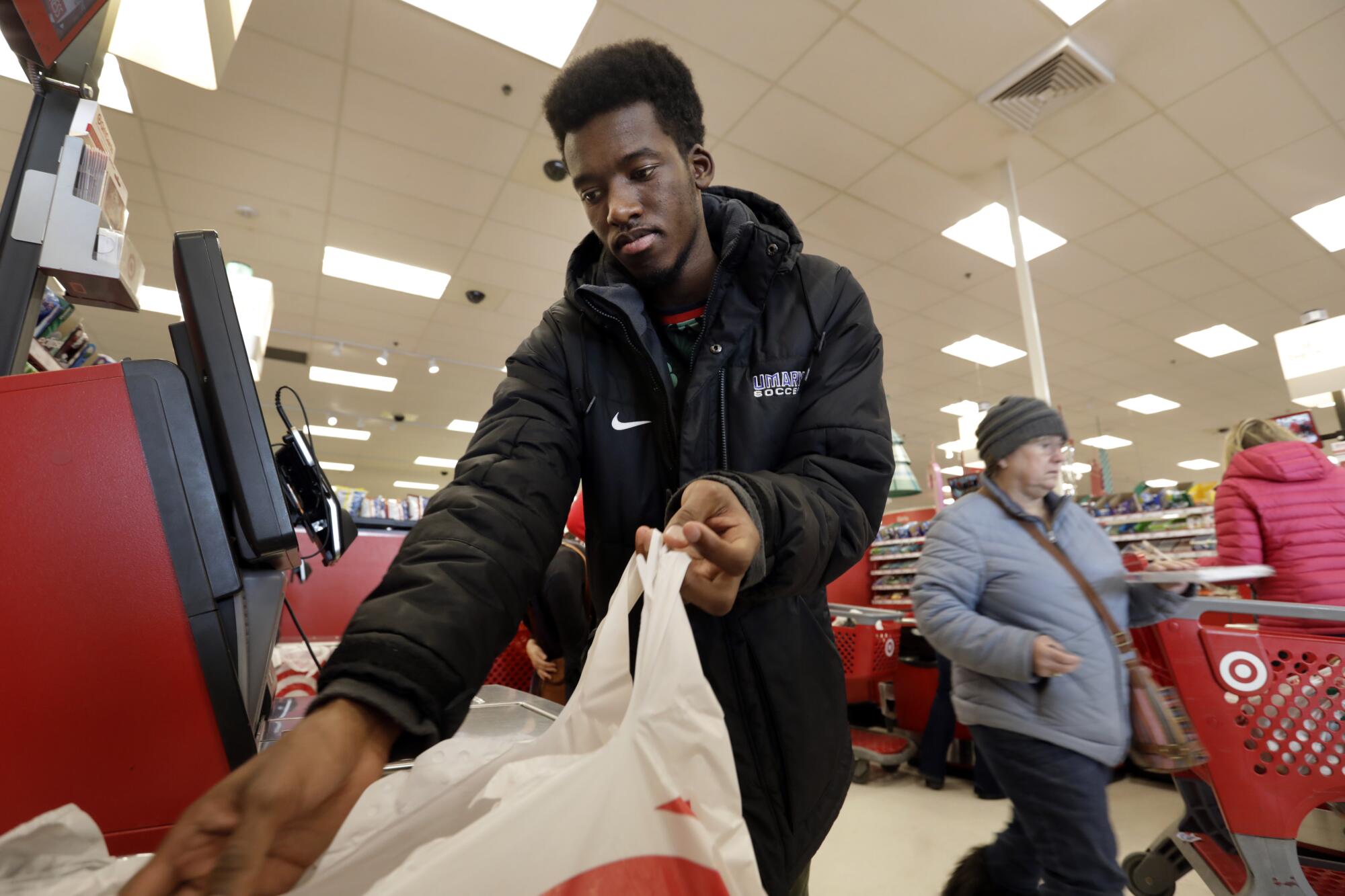
More to Read
Sign up for Essential California
The most important California stories and recommendations in your inbox every morning.
You may occasionally receive promotional content from the Los Angeles Times.











